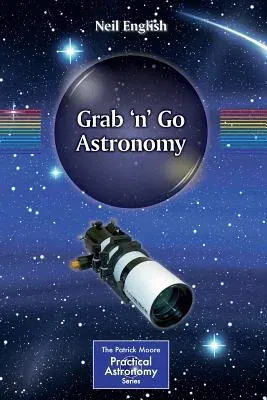Like everyone else, most amateur astronomers live busy lives. After a
long day or work or looking after young children, the last thing you
want as an observer is to have to lug out a large telescope and spend an
hour getting it ready before it can be used. Maybe you are going on
vacation somewhere in the countryside where there are sure to be dark
skies, but you don't necessarily want astronomy to dominate the trip. Or
suppose you are not quite committed to owning a large telescope, but
curious enough to see what a smaller, portable setup can accomplish.
These are times when a small "grab 'n' go" telescope, or even a pair of
binoculars, is the ideal instrument. And this book can guide you in
choosing and best utilizing that equipment.
What makes a telescope fall into the "grab 'n' go" category? That's
easy - speed of setting up, ease of use, and above all, portability.
In Part I of this book, we survey the various types of equipment,
including accessories and mounts, that are available, and what it is
best for what kind of viewing.
Part II is about using your grab 'n' go telescope to visit a wealth and
wide variety of objects. There are chapters on solar, lunar and
planetary observing, as well as descriptions of many deep sky objects,
including double and variable stars, planetary, emission and reflection
nebulae, open and globular clusters and distant galaxies.
This ambitious text is dedicated to those who love to or - because of
their limited time - must observe the sky at a moment's notice, whether
from the comfort of a backyard or while on business or vacation far from
home. Everything you need to know is here. So get started!.

